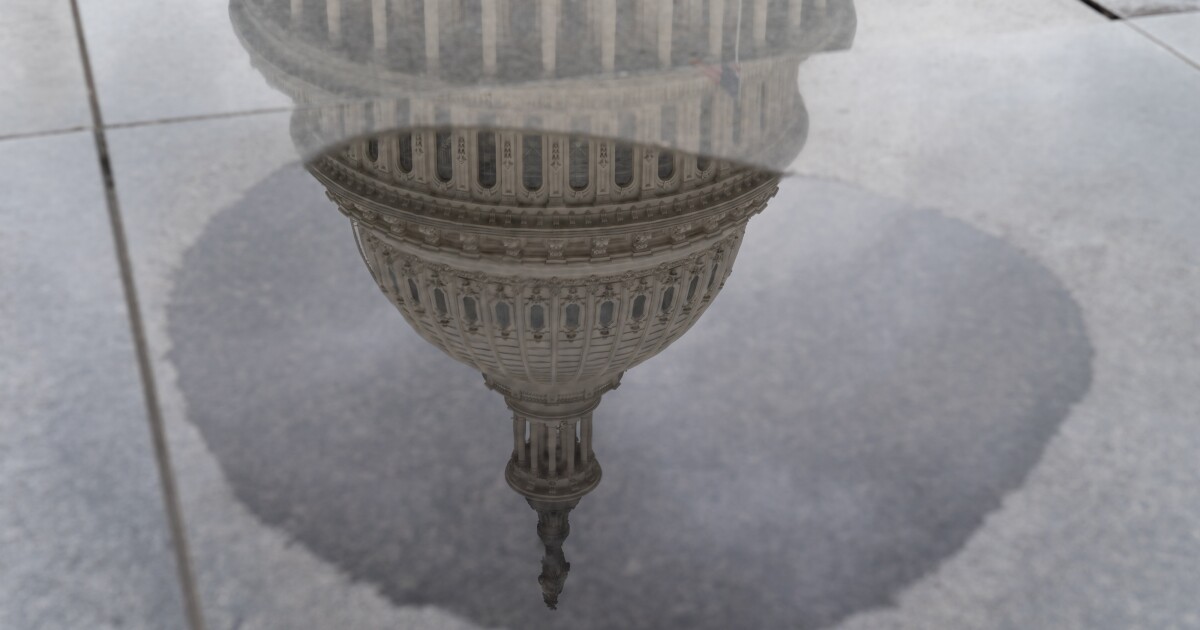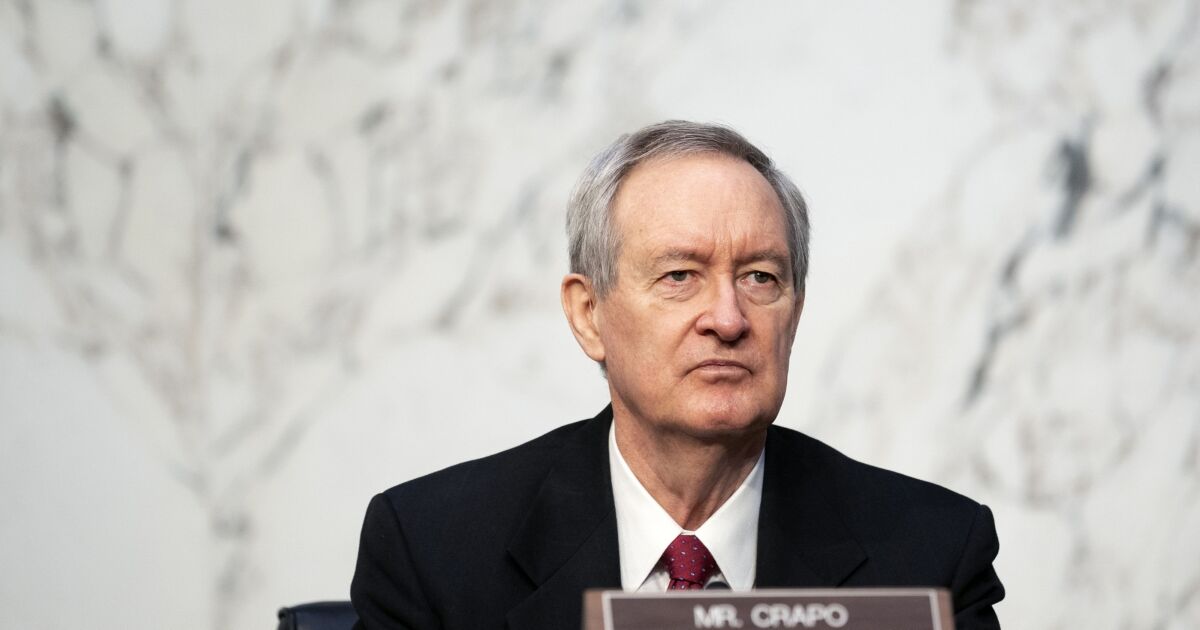Accounting
Trump to reshape US economy with tariffs, crackdown on migrants
Published
7 months agoon

Donald Trump is returning to the White House, and the U.S. economy is in for a wild ride.
The former and soon-to-be next president has promised an escalation of tariffs on all U.S. imports and the biggest mass deportation of migrants in history. He also wants a say in Federal Reserve policy. Many economists reckon the platform adds up to higher inflation and slower growth ahead.
Trump also promised sweeping tax cuts during the campaign that culminated in his victory over Vice President Kamala Harris. His ability to deliver them may hinge on

Win McNamee/Photographer: Win McNamee/Getty
Still, it’s Trump’s tariffs — which he’s threatened to slap on adversaries and allies alike — that stand to have the biggest impact on the U.S. economy, analysts say. The self-proclaimed “tariff man” enacted duties
Trump says the import taxes can help raise revenue, as well as reduce U.S. trade deficits and re-shore manufacturing. What’s more, as Trump demonstrated last time he was in office, a president can enact tariffs essentially single-handedly.
“He’s going to be off and running,” said Mark Zandi, chief economist at Moody’s Analytics. “I think we’re going to get these policies in place very quickly and they’re going to have impact immediately.”
Most economists say inflation will rise as a result, because consumers will pay higher costs that are passed on by importers who pay the tariffs.
Moody’s predicted before the vote that with Trump as president inflation would rise to at least 3% next year — and even higher in the event of a GOP sweep — from 2.4% in September, fueled by higher tariffs and an outflow of migrant labor. If targeted countries retaliate and a trade war ensues, the US will face “a modest stagflationary shock,” Wells Fargo economist Jay Bryson said in an Oct. 16 webinar, a situation in which economic output stalls and price pressures rise.
‘Winners and losers’
Such a scenario will put the Federal Reserve in the position of wanting to raise interest rates to combat inflation, but also to cut rates to prevent the risk of a recession, said Jason Furman, the former head of the White House Council of Economic Advisers under President Barack Obama.
“In economics, everything has winners and losers,” Furman said in an Oct. 17 webinar. “In this case, the losers are consumers and most businesses.”
Trump will likely have thoughts on how the central bank should respond. He
In general, Trump and his supporters dismiss the downbeat projections from “Wall Street elites.” They point out that inflation didn’t spike in his first term while he enacted tariffs and tax cuts — and presided over robust economic growth, until the pandemic hit.
The Coalition for a Prosperous America, which supports trade protectionism,
‘Loosening up’
Michael Faulkender, chief economist at the America First Policy Institute that’s staffed with officials from Trump’s first administration, said the negative projections don’t account for the economic growth that Trump’s deregulatory agenda and plans to boost energy production would generate.
“There’s a lot of loosening up of our economy, removing structural costs in our economy, that can generate growth in an actually deflationary way,” Faulkender said.
Trump promised to make permanent the tax cuts he pushed through in 2017 for households, small businesses and the estates of wealthy individuals — most of which are due to expire at the end of 2025. Even if the GOP loses its sway over the House, there’s likely some room to strike a deal with Democrats, who also favor keeping some of those measures in place.
Any such bargaining will take place under the pressure of another looming debt-ceiling showdown, with borrowing limits set to kick in again next year under a deal to resolve a 2023 standoff. Congress-watchers see other areas for potential agreement, because some — like a tax-credit for childcare and an exemption for tips — were backed by both parties during the campaign. But some of Trump’s proposals, including further cuts in the corporate tax rate, would likely be off the table if Republicans lose the House.
The tax and spending promises that the Trump campaign rolled out during the election could collectively
Many economists also doubt that Trump’s trade policy can quickly boost manufacturing employment, one of the stated goals. It takes years to build factories, and automation means they nowadays require fewer workers.
A National Bureau of Economic Research study
“The tariffs are not going to bring down the trade deficit, they’re not going to restore manufacturing jobs, but it’ll take several years to discover that and a lot of pain in between,” Maurice Obstfeld, formerly a chief economist at the International Monetary Fund, said in an Oct. 17 webinar.
‘Significant chaos’
Trump’s threat to deport millions of undocumented migrants is another source of alarm to many economists and businesses. It would reduce the labor pool available to companies that have found it hard to hire.
Deporting post-2020 arrivals would shrink the economy by some 3% by the next election in 2028, while the drop in demand from a smaller population would lower prices, Bloomberg Economics’ Chris Collins wrote in a note. The impact would likely land hardest in industries like construction, leisure and hospitality — and states including Texas, Florida and California — where migrants make up the biggest share of the labor force.
Of course, campaign pledges often fall by the wayside, and the economic impact of Trump’s second-term policies will depend on which ones he prioritizes and can get done.
Many doubt that deportations of migrants are feasible on the scale Trump has proposed. He’s floated using the U.S. Immigration and Customs Enforcement or even the Alien Enemies Act of 1798 — used to justify World War II-era internment of noncitizens — to carry out the plan, which would likely face court challenges.
As for tariffs, Trump himself has indicated the numbers he floats are often intended as bargaining levers. But even the threat of tariffs will be disruptive as companies scramble to renegotiate contracts and reconfigure supply chains to get ahead of the potential duties, said Wendy Edelberg, director of the Brookings Institution’s Hamilton Project.
“We’re going to see this significant chaos across the entire business landscape,” she said.
You may like
Accounting
How tax and tariff questions are leaving investors in limbo
Published
2 hours agoon
June 2, 2025

Even after the biggest May jump in 35 years for the S&P 500, investors’ understandable confusion about the future of tax and tariff policies and inflation is driving a lot of anxiety.
The S&P’s value
Beyond questions of how potential tariffs might affect inflation,
Many high net worth and ultrahigh net worth clients who work with David Lesperance, the founder of immigration tax and law advisory firm
READ MORE:
Responding to uncertainty
In the case of Lesperance’s ultrawealthy clients, that means taking steps as drastic as seeking residency outside of the country and offshore citizenship in anticipation of a recession next year and the political pendulum swinging back toward Democrats, who might adopt taxes on unrealized gains or that target billionaires or millionaires. Other investors may be acting toward much more immediate needs or
Out of 373 retirees polled between March 25 and April 17 as part of the Schroders
“While advisors and clients can’t control Washington, they can control how they respond,” Boyden continued. “Sticking to a financial plan, staying invested through market cycles, and resisting the urge to make emotional decisions are all variables within their control. Periods of heightened uncertainty present an opportunity for advisors to deepen relationships by communicating with clients more frequently to help them reassess goals, understand allocations and feel more confident in their strategy. Our data shows that many retirees are without a plan or professional guidance — this void is an opportunity for advisors.”
READ MORE:
Answering the unknowables
Those retirees and other investors are struggling to find answers that aren’t even clear to some of the top experts trying to figure out the form and implications of taxes and tariffs in the future. Ongoing court cases have placed
But the bill garnered enough support to pass the House by one vote and the backing of influential groups like the pro-business
The outlook has grown so blurry that David Kelly, the chief global strategist of JPMorgan Asset Management, compared investors’ task of figuring out next steps to the challenge of five argumentative siblings putting together a 1,000-piece puzzle.
“Despite political tensions, ongoing policy changes and heightened inflation and recession concerns, 2025 so far has generated positive returns for investors, with the S&P 500 and the bond markets registering small gains and international stocks posting much larger increases,” Kelly said in a June 2 note. “This is no time for complacency, however. The outlook for the economy is for just slow GDP growth, smaller job gains and temporarily higher inflation. This should translate into sticky interest rates, decelerating earnings growth and a falling dollar. At the start of the year, given valuations and portfolio concentration, it made sense for investors to rebalance away from U.S. mega-cap growth stocks and towards more defensive U.S. stocks, international equities and alternatives. Five months into the year, while the macro jigsaw remains complicated, the same advice seems warranted.”
READ MORE:
Legislative agenda
As for the tax and spending bill, President Trump’s Republican allies in the Senate have discussed a possible goal of passing the massive legislation by July 4. But voting the legislation through the Senate could prove difficult, according to Jonathan Traub, a managing principal and the leader of the Tax Policy Group at consulting and professional services firm
“For both policy and procedural reasons, we can expect changes to the current legislation,” Traub said in a statement after the House passage of the bill last month. “It will remain a tremendous challenge for Republican leaders to keep near unanimity among their members given the push and pull on so many major components of the bill.”
Provisions of the bill as wide-ranging as the level of tax brackets and states’ ability to
“There’s a whole bunch of opportunity, but in order to do that you need to get a whole bunch of planning in place,” Lesperance said. “It’s very interesting on the planning side, but people are scrambling, and they’re making educated bets.”

Significant changes are in store for President Donald Trump’s signature $3.9 trillion tax-cut bill as the Senate begins closed-door talks this week on legislation that squeaked through the House by a single vote.
Senate Republican leaders are aiming to make permanent many of the temporary tax cuts in the House bill, a move that would increase the bill’s more than $2.5 trillion deficit impact. But doing so risks alienating fiscal hawks already at war with party moderates over the bill’s safety-net cuts.
It amounts to a game of chess further complicated by the top Senate rules-keeper, who will decide whether some key provisions violate the chamber’s strict rules. Jettisoning those provisions — which include gun silencer regulations and artificial intelligence policy — could sink the bill in the House.
House Republicans’ top tax writer, Representative Jason Smith, on Friday said that senators need to leave most of the bill untouched in order to ensure it can pass the House in the end.
“I would encourage my counterparts, don’t be too drastic, be very balanced,” he said.
The wrangling imperils Republicans’ goal of sending the “Big, Beautiful Bill” to Trump’s desk by July 4. But the real deadline is sometime in August or September, when the Treasury Department estimates the US will run out of borrowing authority.
The House bill would raise the government’s legal debt ceiling by $4 trillion, which the Senate wants to increase to $5 trillion in order to push off the next fiscal cliff until after the 2026 congressional elections.
That’s just one of the major changes the Senate will weigh in the coming weeks. Here are others:
Permanent business breaks
Senate Finance Chairman Mike Crapo’s top priority is making permanent the temporary business tax cuts that the House bill sunsets after 2029. These are the research and development tax deduction, the ability to use depreciation and amortization as the basis for interest expensing, and 100% bonus depreciation of certain property, including most machinery and factories.
Senate Republicans plan to use a budget gimmick that counts the extension of the individual provisions in the 2017 Trump tax bill as having no cost. That gives them room to make the additional business tax cuts and possibly extend some of the new four-year individual cuts in the House bill like those on tips and overtime.
Deficit hawks could demand new offsets, however, either in the form of spending cuts or ending tax breaks like one on carried interest used by private equity.

Stefani Reynolds/Bloomberg
The SALT cap
The House expanded the state and local tax deduction limit from $10,000 to $40,000 to get blue-state Republicans behind the bill. But SALT isn’t an issue in the Senate, where high-tax states like California, New York and New Jersey are represented by Democrats.
“I can’t think of any Senate Republicans who think more than $10,000 is needed and I can think of several who think the number should be zero,” said Rohit Kumar, a former top Senate staffer now with Big Four firm PwC.
That includes deficit hawks like Louisiana’s John Kennedy, who has balked at the House’s SALT boost.
Senators could propose keeping the current $10,000 SALT cap as a low-ball counter, forcing the House to settle from something in the ballpark of a $30,000 cap, Kumar said.
The Senate could also change new limits on the abilities of passthrough service businesses to claim SALT deductions.
Green energy tax credits
Moderate Republicans in the Senate are pushing back on provisions in the House bill that gut tax credits for solar, wind, battery makers and several other clean energy sectors.
Senator Lisa Murkowski of Alaska said she’s seeking to soften aggressive phaseouts of tax credits for clean electricity production and nuclear power. She has the backing of at least three other Republicans, giving her enough leverage to make demands in a chamber where opposition from four GOP senators would kill the bill.
Their demands will run headlong into ultraconservatives, who already think the House bill doesn’t get rid of tax benefits for clean energy fast enough.
Medicaid, Food Stamps
Senators Rand Paul of Kentucky, Rick Scott of Florida, Mike Lee of Utah and Ron Johnson of Wisconsin say they’re willing to sink the bill if it doesn’t cut more spending.
“I think we have enough to stop the process until the president gets serious about reductions,” Johnson said recently on CNN.
They haven’t made specific demands yet, but they could start off where the House Freedom Caucus fell short — cutting the federal matching payment for Medicaid for those enrolled under Obamacare and further limiting federal reimbursement for Medicaid provider taxes charged by states.
Conservatives’ demands are in stark contrast to Republican senators already uncomfortable with the new Medicaid co-pays and state cost-sharing for Medicaid and food stamps in the House bill. Senators Josh Hawley of Missouri, Susan Collins of Maine, and Jim Justice and Shelley Moore Capito of West Virginia join Murkowski in this camp.
Boosting their case is Trump, who told the Freedom Caucus to stop “grandstanding” on more Medicaid cuts.
Regulatory matters
There’s an extensive list of regulatory matters in the House bill that could be struck if they are found to break Senate rules for averting a filibuster and passing the legislation by a simple majority.
Provisions likely to be challenged for not being primarily budgetary in nature include a repeal of gun silencer regulations, preemption of state artificial intelligence regulations, staffing regulations for nursing homes and abolishing the Direct File program at the Internal Revenue Service.
The House bill’s provisions limiting the ability of federal judges to hold administration officials in contempt, ending funding for Planned Parenthood, requiring congressional review of new regulations and easing permitting of fossil fuel projects are also vulnerable.
The biggest Senate rules fight will be over using the “current policy” budget gimmick to lower the cost of the bill. Senate Republican leaders could explore bypassing rules keeper Elizabeth MacDonough if she finds the accounting move breaks the rules.
Battles over these provisions could take weeks.
“I think it would be very difficult to get it out of the Senate quickly,” said Bill Hoagland, a former top Republican Senate budget staffer now with the Bipartisan Policy Center.
Spectrum sales as pay-fors
A major auction of government radio spectrum that would generate an estimated $88 billion in revenue is another unresolved fight.
Ted Cruz of Texas, the Senate Commerce chair, backs the spectrum sale but Senator Mike Rounds of South Dakota has vowed to protect the Defense Department, which has warned auctioning off its spectrum would degrade its capabilities and cost hundreds of billions for retrofits.
The proposal would free up key spectrum for wireless broadband giants like Verizon and Elon Musk’s Starlink.
The estate tax
Majority Leader John Thune and 46 other Republican senators back a total repeal of the estate tax, which would likely cost several hundred billion dollars over a decade, benefiting the heirs of the richest 0.1%. That could make it too pricey for the Senate to include.
The House bill permanently increases the estate tax exemption to $15 million for individuals and $30 million for married couples, with future increases tied to inflation.

Private-equity backed accounting firm Ascend has added Florida Regional Leader firm Saltmarsh, Cleaveland & Gund and California-based Glenn Burdette to its platform, effective June 1.
Saltmarsh, Cleaveland & Gund, based in Pensacola and Tampa, Florida, and Glenn Burdette, in San Luis Obispo, California, are the latest firms to join Arlington, Virginia-based Ascend, which is backed by private equity firm Alpine Investors and ranked No. 29 on Accounting Today‘s
Glenn Burdette formerly operated under an employee stock ownership plan and adds a central California presence to Ascend along with a team of 75 and seven partners, while Saltmarsh marks Ascend’s first Florida footprint and adds a team of 16 partners and 178 total team members to the firm.
Ascend reported $314.74 million in revenue and 1,464 employees in 2024.
Terms of both deals were not disclosed.

“These are two monumental partnerships for Ascend,” said Ascend president Nishaad in a statement. “Glenn Burdette was founded 60 years ago, and in 2000 became the first CPA firm in California to form an ESOP. That decision marked the firm’s commitment to a set of core values that they still wear on their sleeve today – a desire to provide opportunity for their people, a focus on shared ownership as an enabler of success, and a fierce commitment to hold the pen on their own story.”
Glenn Burdette provides tax, audit, bookkeeping, business consulting and financial management services, primarily to middle-market and small owner-managed businesses.

“Partnering with Ascend is the right move at the right time for Glenn Burdette,” said the firm’s CEO David Merlo. “Their forward-thinking approach and shared values make them a natural fit for our next chapter. We chose Ascend because of their strong commitment to reimagining what’s possible — for both our clients and our people.”
Saltmarsh, Cleaveland and Gund is a full-service accounting and advisory firm offering expertise and specialized consulting for many industries and high-net-worth individuals.

“Saltmarsh has an equally proud history, with an 80-year legacy in Florida’s panhandle and central cities,” said Ruparel in a statement. “The firm is synonymous with quality, is a longstanding best-place-to-work, and has a dynamic group of partners that are seen as trusted advisors across disciplines. Less than a year ago, Lee Bell and the Saltmarsh leadership team took the time they needed to articulate a strategic vision that would carry the firm into the next decade and enumerate a plan for achieving that vision. We feel privileged that they decided Ascend is best positioned to help them fulfill those ideals.”
“The success of our business is entirely about putting our people first so they can do what they love, which is helping our clients achieve success,” said Saltmarsh Advisors CEO Lee Bell in a statement. “Ascend’s intense focus on people and their unique concentration on supporting our more than 80-year legacy as Saltmarsh is why we made the decision to partner with them.”
Both Glenn Burdette and Saltmarsh are independent members of the BDO Alliance.
Since Ascend was launched in early 2023, it has made a significant number of investments, including including

Elon Musk’s failure in government

How tax and tariff questions are leaving investors in limbo

What the national debt, deficit mean for your money

New 2023 K-1 instructions stir the CAMT pot for partnerships and corporations

The Essential Practice of Bank and Credit Card Statement Reconciliation

Are American progressives making themselves sad?
Trending
-

 Personal Finance1 week ago
Personal Finance1 week agoHow appealing property taxes can benefit new homeowners
-

 Blog Post1 week ago
Blog Post1 week agoHow to Implement Internal Controls to Prevent Business Fraud
-

 Economics5 days ago
Economics5 days agoElon Musk says Trump’s spending bill undermines the work DOGE has been doing
-

 Economics1 week ago
Economics1 week agoMAGA: protecting the homeland from Canadian bookworms
-

 Accounting6 days ago
Accounting6 days agoHighest paid jobs in corporate accounting
-

 Personal Finance1 week ago
Personal Finance1 week agoHow to pay college tuition bills with your 529 plan
-

 Economics6 days ago
Economics6 days agoHow young voters helped to put Trump in the White House
-

 Personal Finance5 days ago
Personal Finance5 days agoHarvard, Trump international enrollment battle affects college applicants
